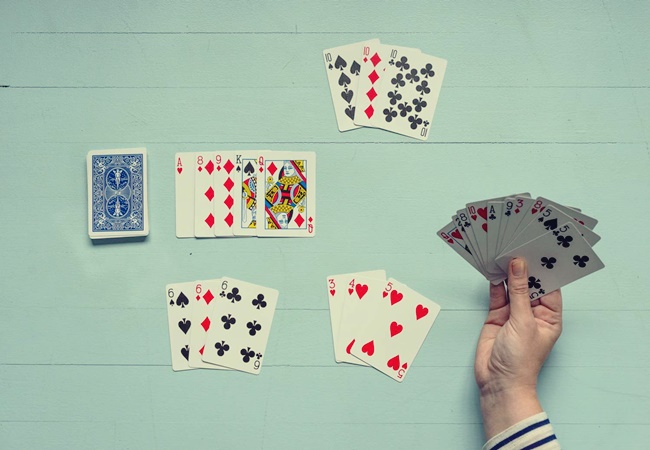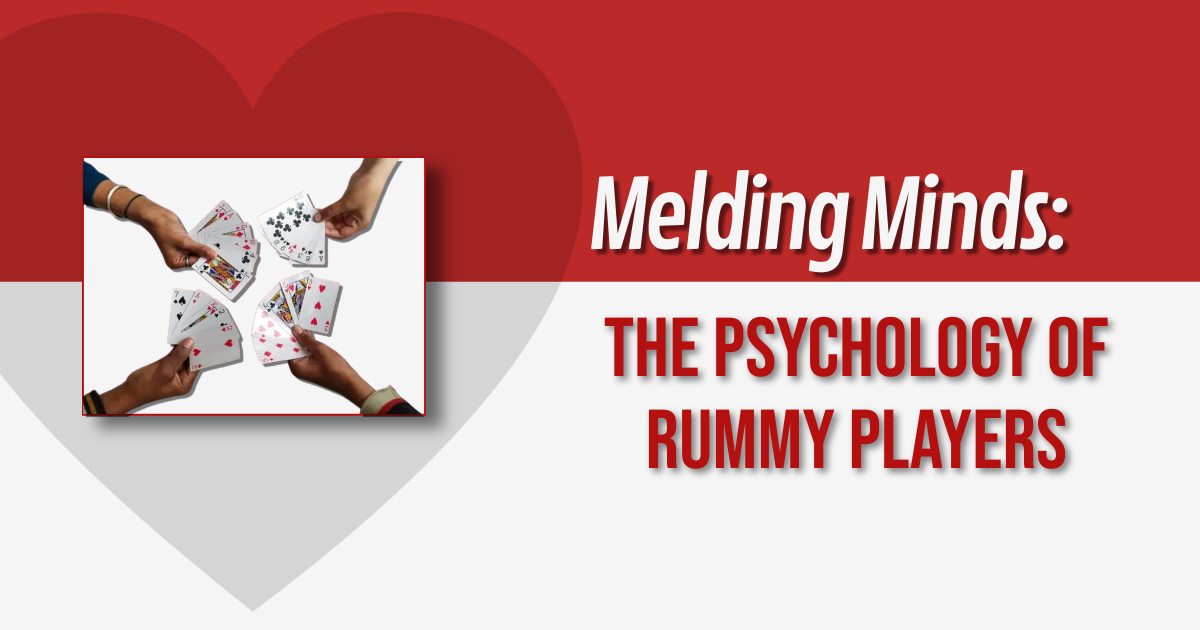Melding Minds: The Psychology of Rummy Players
Rummy, a timeless card game enjoyed by millions worldwide, offers not just entertainment but also a fascinating glimpse into the intricate workings of the human mind of rummy players. Just like in Teen Patti Stars, decision-making under pressure, strategic planning, and emotional resilience are vital aspects of the psychology of rummy players, making it a complex and compelling subject worth exploring.

Introduction to Rummy
Rummy is a group of matching-card games notable for similar gameplay based on matching cards of the same rank or sequence and same suit. With its origins tracing back to the 19th century, Rummy Game has evolved into various popular versions played across cultures, including Gin Rummy, Indian Rummy, and Rummikub. Its enduring appeal lies in its blend of luck, strategy, and skill, making it a favorite pastime for players of all ages.
Understanding the Psychology of Rummy Players
Decision-making Process
Central to the psychology of rummy players is their decision-making process. Every move in the game involves assessing probabilities, weighing risks, and predicting opponents’ strategies. Players must constantly evaluate their hand’s potential and adapt their tactics accordingly, showcasing the cognitive agility required for success.
Risk Assessment
Risk assessment is another crucial aspect of rummy psychology. Players must balance the desire to form winning combinations with the risk of discarding cards that could benefit opponents. This delicate balance requires a keen understanding of probabilities and a willingness to take calculated risks when necessary.
Psychological Aspects of Strategy
Beyond the mechanics of the game, rummy strategy is deeply intertwined with psychological factors. Bluffing, for example, can be a powerful tactic to mislead opponents and gain a strategic advantage. Moreover, understanding the psychological tendencies of opponents can inform strategic decisions, such as predicting their reactions to certain moves.
The Role of Memory in Rummy
Memory and Card Tracking
Memory plays a crucial role in rummy, particularly in card tracking. Successful players possess exceptional memory skills, enabling them to keep track of which cards have been played and which are still in circulation. This ability allows players to make informed decisions based on the probability of drawing specific cards.
Strategic Recall
In addition to memory, strategic recall is essential for rummy players. Remembering which cards have been discarded and which are likely to still be in play helps players anticipate their opponents’ moves and plan their own strategies accordingly. Strategic recall also involves remembering previous rounds and adjusting strategies based on evolving game dynamics.

Psychological Factors Influencing Gameplay
Confidence and Self-assurance
Confidence plays a significant role in rummy gameplay. Confident players are more likely to take calculated risks and assertively pursue their strategies. Conversely, self-doubt can lead to hesitation and missed opportunities. Cultivating confidence through practice and experience is key to success in rummy.
Emotional Control and Resilience
Emotional control is vital in a game where fortunes can change rapidly. Rummy players must maintain composure even in the face of setbacks, avoiding impulsive decisions driven by frustration or disappointment. Developing emotional resilience helps players stay focused and adaptive throughout the ups and downs of the game.
Social Dynamics and Player Interactions
Rummy is not just a battle of cards but also a social interaction among players. Understanding social dynamics, such as reading opponents’ body language and verbal cues, can provide valuable insights into their strategies and intentions. Moreover, fostering positive interactions and sportsmanship enhances the overall gaming experience for everyone involved.
Cognitive Biases in Rummy Players
Anchoring Bias
Anchoring bias refers to the tendency to rely too heavily on the first piece of information encountered when making decisions. In rummy, this can manifest when players fixate on specific cards or sequences, overlooking potentially better options. Recognizing and mitigating anchoring bias is essential for making well-rounded strategic decisions.
Loss Aversion
Loss aversion is the tendency to prefer avoiding losses over acquiring equivalent gains. In rummy, players may become overly cautious when faced with discarding valuable cards, fearing the potential loss of points or advantage. Overcoming loss aversion requires a balanced mindset focused on long-term success rather than short-term setbacks.
Confirmation Bias
Confirmation bias occurs when individuals favor information that confirms their preexisting beliefs or hypotheses while ignoring contradictory evidence. In rummy, this bias can lead players to interpret ambiguous signals from opponents in a way that supports their own strategies. Staying open-minded and receptive to new information is crucial for avoiding confirmation bias in gameplay.
The Impact of Experience and Expertise
Beginner vs. Expert Mindset
Experience plays a significant role in shaping rummy players’ approaches to the game. Beginners may focus on basic strategies and rules, whereas experienced players develop more nuanced tactics based on years of practice and observation. Transitioning from a beginner to an expert mindset involves continuous learning, adaptation, and refinement of skills.
Learning Curves and Skill Development
Like any skill-based activity, rummy has a learning curve that rewards persistent effort and practice. As players gain experience, they become more proficient at recognizing patterns, predicting opponents’ moves, and optimizing their strategies accordingly. Continuous skill development is essential for staying competitive and enjoying long-term success in rummy.
Strategies for Improving Psychological Resilience
Mindfulness Techniques
Mindfulness techniques, such as deep breathing and meditation, can help rummy players stay calm and focused during intense gameplay. By cultivating present-moment awareness and emotional regulation, players can enhance their decision-making abilities and maintain a positive mindset throughout the game.
Emotional Regulation Exercises
Emotional regulation exercises, such as visualization and positive self-talk, empower rummy players to manage stress and anxiety effectively. By reframing negative thoughts and emotions, players can channel their energy into productive gameplay and maintain confidence in their abilities.
Cognitive Reframing
Cognitive reframing involves changing the way rummy players perceive and interpret challenging situations. By viewing setbacks as opportunities for growth rather than failures, players can maintain a resilient mindset and approach each game.








